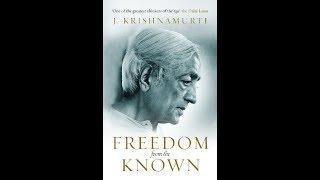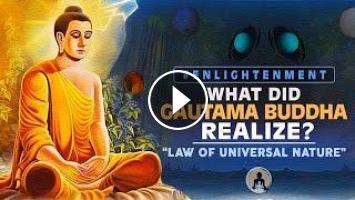Enlightenment: What Did Gautama Buddha Realize? Law of Universal Nature and The Surprise of All Humanity.
#buddha #enlightenment
"When there is this, that is With the arising of this, that arises When this is not, neither is that With the cessation of this, that ceases" - Law of Universal Nature
The concept of dependent origination (paticcasamuppāda) was developed by the spiritual teacher Siddhārtha Gautama who became known as the Buddha upon enlightenment. The Buddha used the concept to explain a causal relationship between worldly experiences and suffering or dukkha of people through everyday life phenomenon. The Buddha’s straight forward teaching was in stark contrast to the practices of society in India at the time where people worshipped ‘sacred’ objects, ‘supernatural’ beings, and performed rites and rituals based on superstitious beliefs. Buddha’s teachings did not contain the mystical or concern itself with metaphysical issues, although he stretched the meanings that people already knew to create new meanings. Others superimposed esoteric teachings after his death. However the presence of the esoteric is part of the poetry of teachings that assists in conveying meaning within the paradigm of human consciousness at the time.
The Buddha’s revelations came at a time when his contemporaries were influenced by astronomy, where the universe was seen and explained as a linear and regular entity, with consciousness separated from the universe and the universe separated from consciousness. This mechanistic view of the world was expounded upon by Descartes, Newton, Weber and later Frederick Taylor in the management arena with influence lasting well into the 20th century. Since the end of the European renaissance the metaphor of science has been that of the machine with the universe being described as ‘grand clockwork’ where the planets spin around the sun in a predictable fashion, described by the precision of mathematics. Science reduced everything to the smallest part in the belief that if one understood the parts one would understand the whole system. Reductionism is the standard of science. This thinking still prevails through the means of how we live and organize ourselves, where organizational charts, job descriptions, policies, strategies, budgets, and operational plans are utilized as a means to control of the organization and environment like a machine. This has been adequate where a stable equilibrium exists, but this itself is only a myth. The predominating theories were observer based where predictable order, stability, separation from the individual, and grounded ‘fixedness’ are the major characteristics.
In contrast, dependent origination presented an alternative view to the world to what Descartes and company espoused. Dependent origination postulated a co-evolutionary interrelated world based on co-dependency, built upon dynamic cause and effect to create aggregate conditions, rather than the accepted ‘Newtonian order’ of existence.
Although the philosophy of dependent origination, which is considered ‘the heart’ of Buddhism, can be applied widely, the Buddha restricted his application of the principles to the development of human nature and explanation of suffering. On metaphysical and matters of the hereafter, he was silent, thus the concepts are very vague for application for other domains. Nevertheless, the concept of dependent origination can be closely aligned with many aspects of quantum mechanics, systems and chaos theory, Darwinian natural selection extrapolated to a cosmic scale, Dawkins views about evolutionary biology, the Gaia hypothesis, and cognitive science. The concept of dependent origination distinguishes Buddhism from religion as according to dependent origination a creator is not necessary in forming the cosmos which has been postulated to evolve through causal dependence in a similar view taken by Hawking and Mlodinow.
- Category
- Buddhism





